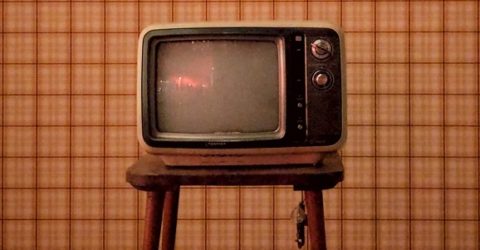Do I have to buy a smart TV nowadays?
Smart TVs are ubiquitous, but it’s still possible to buy a television which isn’t internet enabled.

It’s often assumed that living at the pinnacle of modern technology is wholly positive, and entirely beneficial to consumers.
In reality, there are many people who don’t appreciate evolving tech trends, and their many inherent complexities.
In the 1980s, older generations fulminated about VCR timers and cassette-powered home computers.
In the 1990s, the internet proved equally unfathomable to people of a certain age, while more recent sources of confusion have included social media and smartphone apps.
You might assume that after half a century of mainstream consumer electronics, everyone would be enthusiastic about new technologies as they emerge and enter the mainstream.
Yet not everyone wants a car with a touchscreen, an Alexa-enabled fridge, or a TV that demands an internet connection every time it’s switched on.
Smart TVs can be especially baffling to those who simply want to watch the light channel.
There are no physical buttons on the frame, while the remote control is covered in symbols and abbreviations.
But is buying a smart TV the only option if your existing unit gives up the ghost?
Smart watch
Statistics illustrate the issue faced by (mostly older) consumers when they walk into their nearest electronics store.
Statista data suggests 67 per cent of UK homes own at least one smart TV set, up from just 11 per cent in 2014.
In Europe, research suggests 96 per cent of new television sales in Germany are smart TVs.
Any search for ‘television’ on consumer electronics websites will produce a list of popular or highly rated products packed with apps and utilities.
But is this market dominance justified?
The majority of UK households still don’t have any streaming media subscriptions, and that figure is unlikely to rise as austerity makes an unwelcome return.
Few of us buy a television with any intention of surfing the internet on it. Even if they did, TV web browser interfaces are cumbersome, slow and unintuitive.
You’ll also struggle to find anyone who enjoys the games pre-installed onto smart TVs.
Dumb founded
In recent years, we’ve seen a rise in so-called dumbphones – the deliberate antithesis of smartphones.
These basic handsets support calls and texts, but precious little else besides MP3 music playing and maybe a few basic games.
For older consumers, or anyone keen to avoid the insidious drip-drip of curated news feeds and push notifications, these dumbphones are now highly desirable commodities.
Televisions haven’t regressed to the same extent, but it’s still possible to purchase a TV which isn’t loaded with apps and Ethernet ports.
On the Argos website, 330 of the 338 televisions on sale are described as ‘smart’.
The other eight are small – a maximum of 32 inch screen sizes in an age when most new TV sets are 55 inches or more.
On a more positive note, prices are also small. You’ll rarely pay more than £200 for a dumb TV, even if it has an HD screen and an integrated DVD player.
In a time of unprecedented pressure on household finances, a new TV for just over £100 represents excellent value.
These basic sets have simple remote controls with few buttons, concise instruction booklets, and few sockets on their backs.
They might not offer apps or interactive services, but they’ll provide access to satellite or cable TV with a separate subscription, and red button services are generally available too.
If all you want to do is watch Coronation Street, and you don’t need a screen bigger than a typical fireplace, there are still alternatives to smart TVs






